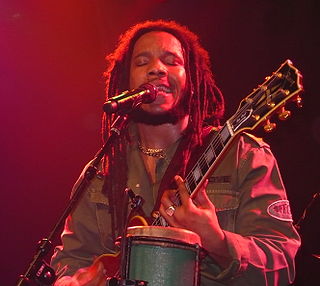A Quote by Bela Fleck
There are a lot of chapters to the banjo's history. Part of it are the roots in Africa, where it's a more primitive instrument. Then it comes to the United States where it morphs into the slave music that they created here, which was very African in origin.
Related Quotes
United States has always been very close to Africa and it's very sad now to see that Africa has a lot more friends - a lot more engagements with the Chinese, with the Indians, with the Brazilians as the United States retreats. Actually, Africa is a wonderful place to do business and American business is missing a big opportunity by really overlooking Africa.
More and more, as civilization develops, we find the primitive to be essential to us. We root into the primitive as a tree roots into the earth. If we cut off the roots, we lose the sap without which we can't progress or even survive. I don't believe our civilization can continue very long out of contact with the primitive.
I did not like that name "world music" in the beginning. I think that African music must get more respect than to be put in a ghetto like that. We have something to give to others. When you look to how African music is built, when you understand this kind of music, you can understand that a lot of all this modern music that you are hearing in the world has similarities to African music. It's like the origin of a lot of kinds of music.
You can fit two United States and maybe a third one into the entire continent of Africa, but on a map we make the entire continent of Africa look like the size of the United States, which is why a lot of people don't know that Africa is a continent. They think it's a country because it looks as big as we do.
The commentators of 1963 speak, in discussing Africa, of the Monrovia States, the Brazzaville Group, the Casablanca Powers, of these and many more. Let us put an end to these terms. What we require is a single African organisation through which Africa's single voice may be heard, within which Africa's problems may be studied and resolved.
In order to understand the history of the banjo, and the history of bluegrass music, we need to move beyond the narrative we've inherited, beyond generalizations that bluegrass is mostly derived from a Scotch-Irish tradition with influences from Africa. It is actually a complex Creole music that comes from multiple cultures.
Africans in the United States must remember that the slave ships brought no West Indians, no Caribbeans, no Jamaicans or Trinidadians or Barbadians to this hemisphere. The slave ships brought only African people and most of us took the semblance of nationality from the places where slave ships dropped us off.

































